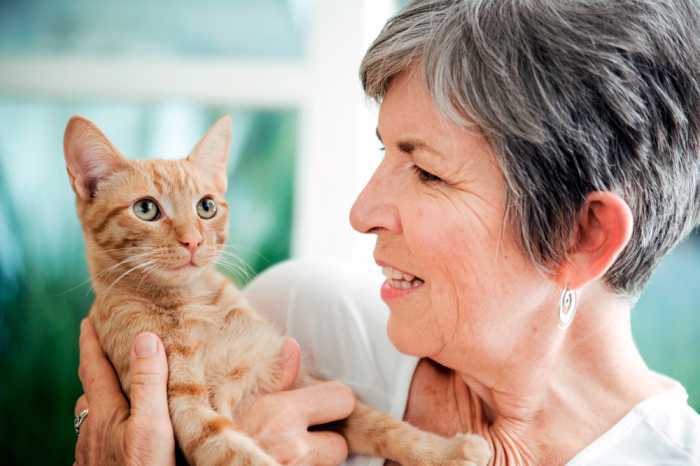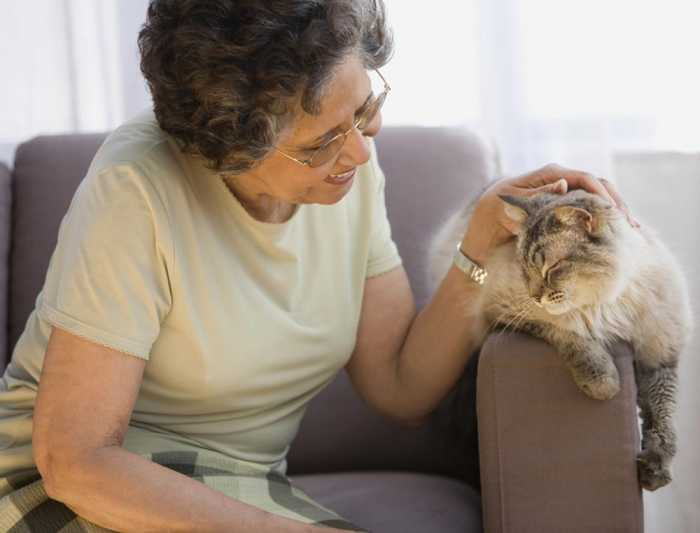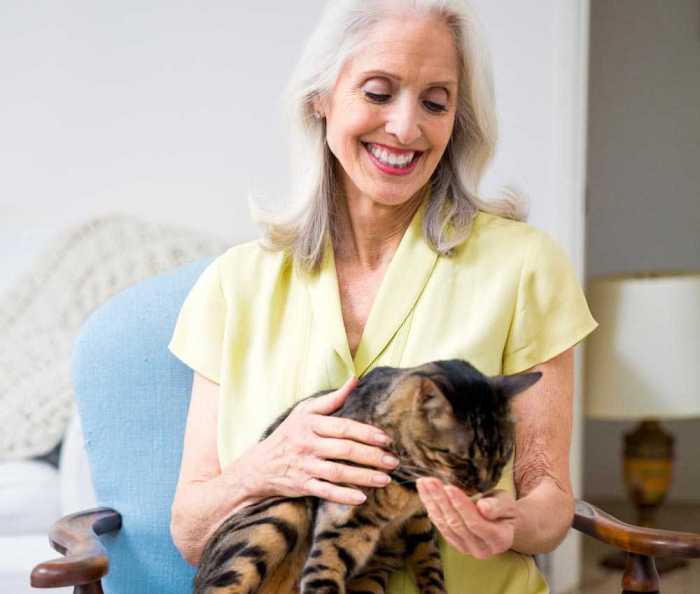
Katzenworld - Should you keep your cat indoors or outdoors?
Posted on 28 June, 2017

Many cat owners worry about letting their cats outside and it’s becoming increasingly common for cats to be kept indoors, especially with the fashion for people to have pedigree cats.
In the USA, 90% of cats are indoor cats. At Homesitters Ltd though we have more clients with outdoor cats than indoor cats and in fact only about 10% of cats in the UK are currently believed to live permanently indoors, however it’s a trend that is expected to grow.
But what is the right thing for your cat? This obviously comes down to individual choice, the personality of your cat and where you live. Some cats are perfectly happy never to venture outside, whereas others love to roam around their local environment.
If you live in a flat the practicalities of letting your cat out need to be considered. Equally if your home is close to a busy main road, then this may mean it’s better off for your cat to remain indoors. You need to decide what is in the best interest of your cat, both mentally and physically.
Here we look at some of the pros and cons of keeping your cat in or out.
The great outdoors
Cats evolved around 13 million years ago and have become highly skilled hunter gatherers. Whilst the domestic cat no longer has to scavenge for food, its instincts remain and being allowed outside to express their natural behaviour is important for their mental and physical wellbeing.
Other things to consider are normal cat behaviours, such as scratching and spraying which cat owners may not notice so much if their cat is allowed outside, but which may become a problem with an indoor cat.
In the USA, some cats have their claws removed to prevent them from scratching carpets and furniture. This isn’t usual in the UK; however, items such as scratching posts can provide an indoor cat with a place to scratch – although whether they only scratch here can be difficult to enforce!

Keeping fit
Allowing your cat outside will enable it to get the exercise it needs more readily. Hunting, climbing trees and fences, and chasing birds give your cat the ability to use its natural agility to keep muscles toned. Being allowed to roam outside will help keep your cat’s weight within a normal range.
We always advise our clients with cats to let their homesitter know about their outdoor cats’ habits so that the homesitter knows not worry should the cat not return for a number of days if that’s normal. They may also want to inform their homesitter of their cats favourite spots to visit should a search be needed.
A survey by Direct Line Pet Insurance found that just under half of all cats in the UK are overweight, attribute to a rise in ‘house cats’ that remain permanently indoors. Active cats are also far less prone to health issues due to obesity than indoor cats, who have limited space to be able to move about as freely.
Outdoor risks
The main risks for cats going outside are being injured or killed by a car, stolen, particularly if you have a pedigree cat, and getting lost or shut into a space, such as a neighbour’s shed. Cats can also be injured by fighting with other cats, although neutering can prevent some cats from fighting. There are also risks from ingesting things they shouldn’t such as household poisons, including garden chemicals, anti-freeze and slug pellets. Often what can look like an innocent puddle of water for instance, can contain anti-freeze leaked from a car.
Although outdoor cats are self-sufficient they may wish to return home to recuperate should they have been injured, particularly if they’re unable to hunt. Should their owner have gone away and locked up their home the cat won’t be able to return for the care they need.
Using a homesitter allows the cat to maintain their routine and also provides peace of mind to its owner that should their outdoor cat wish to return home they’ll be able to do so, without reducing home security.

Catching diseases and parasites
Cats that go outside are much more likely to pick up infectious diseases from other cats and parasites. This is not only from sharing toilet areas with all the other neighbourhood cats, but also from eating contaminated food, dead animals or from fighting with other cats.
So, what can you do to minimise the risks, without keeping your cat indoors all the time?
Ensure your cat is microchipped in case it does get lost, or even stolen.
Consider only letting your cat out in the daytime and keeping them in at night, to help avoid the chance of road traffic accidents.
If your cat prefers to go out at night, they could wear a fluorescent quick release collar to help them be seen more easily
Another option is to fence off your garden or create an enclosure so your cat can enjoy the benefits of being outside, but without the dangers.
It’s important to make sure your cat’s vaccinations are kept up-to-date and that they are regularly given tick, flea and worming treatments.
Keep any garden chemicals or other toxins stored away safely. Whilst you can’t protect your cat from toxins in other gardens, many cats won’t actually venture much further than their own so it minimises the risks.
Whether you decide to let your cat outside or keep them in is a personal choice, weigh up the pros and cons for your cat and do what is best for them. It’s useful to do this prior to getting a cat, since a kitten will adapt to whatever circumstances it finds itself in, whereas trying to keep an older cat indoors if they have been used to going out could be tricky!
Always ensure whoever looks after your cat when you go away knows whether your cat should be let out or not as well, so your indoor cat isn’t mistakenly let out.
Homesitters Ltd is a national home and pet sitting company with over 35 years’ experience looking after people’s homes and pets. The company always ensures clients meet their homesitter prior to assignment, so that they can be fully briefed on the pets they are looking after as well as the home. This includes letting them know if your cat can or can’t go outside!
To book a homesitter, please call us on 01296 630 730 or you can complete an online booking form by clicking here.
To view the original blog story on Katzenworld, please click here.
Tags:



